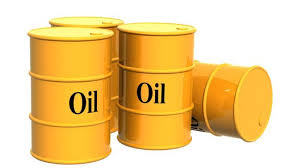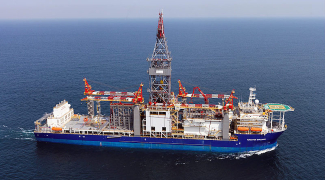
Ike Amos
Abuja — The Petroleum Products Pricing Regulatory Agency, PPPRA, Monday, stated that henceforth, the Central Bank of Nigeria, CBN, would be providing guidance on foreign exchange rate and making input on the pricing template for Premium Motor Spirit (PMS), also known as petrol and other petroleum products.
In a statement in Abuja, Executive Secretary of the PPPRA, Mr. Abdulkadir Saidu, noted that the PPPRA was in talks with the CBN to determine the applicable Foreign Exchange rates for the importation of petroleum products and modality for accessing the applicable Foreign Exchange window by petroleum products marketers.
He said, “This rate is reflected on the pricing template to determine the expected open market price of the product. This means that going forward, the guiding price to be advised, will be determined based on the rates quoted by CBN.
“The price is expected to guide the sale of PMS in Nigeria. In fact, we plan to extend the same pricing mechanism to Aviation Turbine Kerosene (ATK), Automotive Gasoline Oil (AGO), among others. The whole essence of the price band is to ensure price efficiency that is beneficial to both the consumers and oil marketers.”
Saidu noted that the decision of the Federal Government to adopt the current PMS pricing regime was mainly due to the drop in the prices of crude oil in the international market, the need to conserve the country’s resources and the pressure of the declining crude oil prices on the revenue of the government.
He said, “The recent plunge in the prices of crude oil and petroleum products occasioned by the outbreak of Coronavirus pandemic and slowing global oil demand, had a direct bearing on the Expected Open Market Price (EOMP) pushing it to a level below the pump price cap of N145.00 per litre.
“In line with Government’s commitment to the welfare and common good of the populace, the Government directed NNPC, being the sole supplier of PMS into the country at that point, to review downward its Ex-Coastal price of the product for sale to other Marketers to reflect the current low oil price for the benefit of Nigerians.
CBN clarifies position on operation of domiciliary accounts
“Furthermore, the plunge in global crude prices made it increasingly difficult for Government to finance the 2020 National budget as it was predicated on a crude price of $57 per barrel. The low crude oil prices, therefore, presented the opportunity to address the lingering challenges associated with the Under/Over-Recovery regime and free up vital funds required to develop in other key sectors of the economy.
“Additionally, the new initiative is expected to stimulate private investment and growth in the downstream sector and encourage the resumption of products importation by Oil Marketing Companies, translating to more job creation as many depots and facilities that were dormant would now become active.”
Saidu disclosed that the country’s existing refineries were expected to play key roles in the current fuel pricing regime, adding that the policy would also create immense opportunity for increased private sector participation in the industry.
He said, “The Nation’s refineries are required to key into the new pricing regime just like all other operators both private and public. The new regime will open up the oil and gas sector for more private players and investments in refineries, storage facilities and transportation.
“At the end of the day we expect to see more private players operating in the industry. The liberalization of the entire industry will make it possible for private investors to recoup their investments, leading to a more vibrant downstream sector.
“However, in order for the nation’s refineries to continue producing fuels, the authorities in charge of the refineries need to fix the refineries and ensure they come back on stream at optimal level. We believe the upcoming Dangote Refinery and other modular refinery projects nationwide will be able to key into the new pricing regime.”



